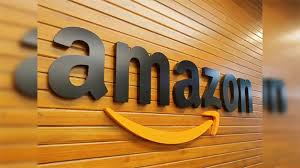E-commerce giant Amazon has expanded its product catalogue in South Africa to include non-perishable groceries, pet food, and health supplements — a strategic move aimed at deepening its footprint in Africa’s most developed retail market and taking on local competitors like Takealot.com.
In a statement issued on Tuesday, Amazon described the expansion as a “major milestone” in its growth plans for the region, just one year after launching operations in South Africa.
The company said the new additions were in direct response to customer demand, making the platform more convenient and attractive to shoppers looking for one-stop shopping options.
Amazon Taps into Local Demand
The new product lines include a mix of international favourites such as Nestle, Red Bull, and Starbucks, alongside popular South African brands like Beacon, Simba, and Koo.
“Since our launch, we’ve been listening closely to customer feedback, and groceries, pet supplies, and health supplements have consistently been among their top requests,” said Robert Koen, Amazon’s Managing Director for Sub-Saharan Africa.
Koen said the expansion reflects the company’s commitment to building a comprehensive retail experience for South African consumers.
Positive Customer Response
Philile Mabolloane, Amazon South Africa’s Head of Retail for Consumables, noted that early customer reactions to the launch have been “extremely positive,” especially in regard to bulk buying options and multipack savings offered across the new categories.
“Customers are loving the flexibility and affordability of shopping online for essential items in bulk. It helps them save both money and time,” Mabolloane said.
Shoppers can now place orders for pantry staples, pet food, and wellness supplements through Amazon’s South African portal and have them delivered directly to their doorsteps.
Rivalry with Takealot Heats Up
The move places Amazon in more direct competition with Takealot.com, South Africa’s leading online retailer, which already offers groceries, pet products, and health goods. Takealot is owned by Naspers, one of Africa’s largest technology investors.
Analysts see Amazon’s latest expansion as a calculated effort to chip away at Takealot’s market dominance by leveraging global supply chains, competitive pricing, and advanced logistics.
“This is not just about expanding product lines—it’s about becoming the go-to platform for everything,” said a Johannesburg-based retail analyst. “Amazon knows that in South Africa, groceries and everyday essentials are where the volume lies.”
E-commerce Market on the Rise
South Africa’s e-commerce sector is growing rapidly, spurred by rising smartphone penetration, digital payments, and consumer demand for convenience. Experts estimate that the online shopping market in South Africa will grow by double digits annually over the next five years.
Amazon’s presence, though relatively new, is expected to accelerate digital transformation in the retail space while forcing local players to innovate and improve service delivery.
By adding essential categories like groceries and health items, Amazon is also betting on customer loyalty, knowing that repeat purchases and convenience can quickly build a strong user base.
Local Partnerships and Economic Impact
Amazon has also signaled interest in working with more South African suppliers, particularly small and medium-sized enterprises (SMEs), to expand its local product range and boost economic participation.
Industry observers believe that this could open doors for local producers to access international markets through Amazon’s global logistics network.
